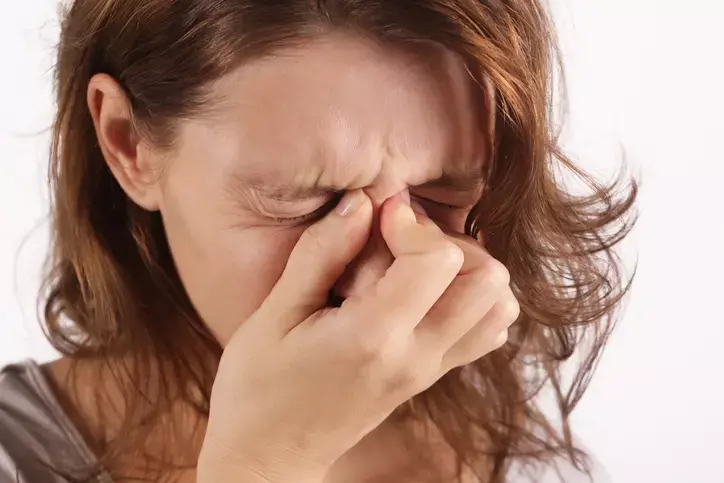- Home
- Medical news & Guidelines
- Anesthesiology
- Cardiology and CTVS
- Critical Care
- Dentistry
- Dermatology
- Diabetes and Endocrinology
- ENT
- Gastroenterology
- Medicine
- Nephrology
- Neurology
- Obstretics-Gynaecology
- Oncology
- Ophthalmology
- Orthopaedics
- Pediatrics-Neonatology
- Psychiatry
- Pulmonology
- Radiology
- Surgery
- Urology
- Laboratory Medicine
- Diet
- Nursing
- Paramedical
- Physiotherapy
- Health news
- Fact Check
- Bone Health Fact Check
- Brain Health Fact Check
- Cancer Related Fact Check
- Child Care Fact Check
- Dental and oral health fact check
- Diabetes and metabolic health fact check
- Diet and Nutrition Fact Check
- Eye and ENT Care Fact Check
- Fitness fact check
- Gut health fact check
- Heart health fact check
- Kidney health fact check
- Medical education fact check
- Men's health fact check
- Respiratory fact check
- Skin and hair care fact check
- Vaccine and Immunization fact check
- Women's health fact check
- AYUSH
- State News
- Andaman and Nicobar Islands
- Andhra Pradesh
- Arunachal Pradesh
- Assam
- Bihar
- Chandigarh
- Chattisgarh
- Dadra and Nagar Haveli
- Daman and Diu
- Delhi
- Goa
- Gujarat
- Haryana
- Himachal Pradesh
- Jammu & Kashmir
- Jharkhand
- Karnataka
- Kerala
- Ladakh
- Lakshadweep
- Madhya Pradesh
- Maharashtra
- Manipur
- Meghalaya
- Mizoram
- Nagaland
- Odisha
- Puducherry
- Punjab
- Rajasthan
- Sikkim
- Tamil Nadu
- Telangana
- Tripura
- Uttar Pradesh
- Uttrakhand
- West Bengal
- Medical Education
- Industry
Mometasone improves chronic rhinosinusitis in pediatric population: JAMA

A recent study by Marta Latek and team found intranasal corticosteroids (INCs) (mometasone) to be clinically effective in the treatment of pediatric chronic rhinosinusitis (CRS) and additionally aid in correcting sinonasal dysbiosis. The findings were published in Journal of American Medical Association.
Adenoid hypertrophy is a condition where the adenoid tissue, located at the back of the nose, becomes enlarged and can cause difficulty breathing through the nose. The study aimed to evaluate the effectiveness of INCs in treating CRS in children. The study was an open-label randomized clinical trial and was conducted in a pediatric allergy outpatient clinic. Children aged 4 to 8 years with CRS were included, and they were randomized to receive either intranasal mometasone or a control treatment for 12 weeks.
The study found that the group treated with INCs had a significant improvement in quality of life compared to the control group. The INC group also had a greater increase in nasopharyngeal microbiome richness and a larger decrease in nasal innate lymphoid cells (ILC3) abundance. The results suggest that treatment with an INC improved the quality of life of children with CRS and had a significant effect on increasing sinonasal biodiversity.
The study reinforces the recommendation of using INCs as a first-line treatment for CRS in children, despite the lack of evidence regarding their efficacy in the pediatric population. However, the study acknowledges the need for further investigation into the long-term efficacy and safety of INCs. Overall, the study provides valuable insights into the clinical, immunological, and microbiological effects of INCs in young children with CRS.
Reference:
Latek, M., Łacwik, P., Molińska, K., Błauż, A., Lach, J., Rychlik, B., Strapagiel, D., Majak, J., Molińska, J., Czech, D., Seweryn, M., Kuna, P., Pałczyński, C., & Majak, P. (2023). Effect of an Intranasal Corticosteroid on Quality of Life and Local Microbiome in Young Children With Chronic Rhinosinusitis. In JAMA Pediatrics. American Medical Association (AMA). https://doi.org/10.1001/jamapediatrics.2022.6172
Neuroscience Masters graduate
Jacinthlyn Sylvia, a Neuroscience Master's graduate from Chennai has worked extensively in deciphering the neurobiology of cognition and motor control in aging. She also has spread-out exposure to Neurosurgery from her Bachelor’s. She is currently involved in active Neuro-Oncology research. She is an upcoming neuroscientist with a fiery passion for writing. Her news cover at Medical Dialogues feature recent discoveries and updates from the healthcare and biomedical research fields. She can be reached at editorial@medicaldialogues.in
Dr Kamal Kant Kohli-MBBS, DTCD- a chest specialist with more than 30 years of practice and a flair for writing clinical articles, Dr Kamal Kant Kohli joined Medical Dialogues as a Chief Editor of Medical News. Besides writing articles, as an editor, he proofreads and verifies all the medical content published on Medical Dialogues including those coming from journals, studies,medical conferences,guidelines etc. Email: drkohli@medicaldialogues.in. Contact no. 011-43720751


